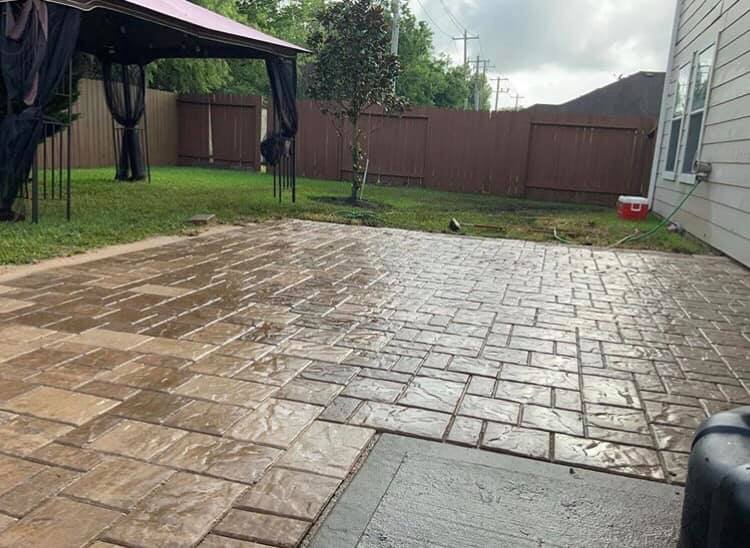Masonry. The word itself evokes images of strong structures, enduring craftsmanship, and perhaps, a hint of mystery. For many in the USA, masonry is a familiar sight – the brickwork of their homes, the stone facades of historic buildings, the tiled walkways of their neighborhoods. But beyond the tangible applications, the term “mason” carries a deeper resonance, particularly when associated with Freemasonry, often simply called “the Masonic” or “the Craft.” This article delves into the various meanings of “mason,” exploring both the literal and symbolic significance of this ancient and respected term within the American community.
The Literal Mason: Builders of Our World
At its core, “mason meaning” refers to a skilled craftsperson who works with stone, brick, concrete, and other materials to construct buildings and other structures.
These literal masons are the builders of our physical world. They possess the expertise to shape raw materials into functional and aesthetically pleasing designs, leaving a lasting impact on the landscape. From laying the foundation of a skyscraper to crafting intricate tilework in a private residence, the skills of a mason are essential to creating the spaces where we live, work, and interact.
The work of a literal mason requires a combination of physical strength, technical knowledge, and artistic vision. They must be proficient in understanding blueprints, mixing mortar, laying bricks or stones with precision, and ensuring the structural integrity of their work. This profession demands dedication, patience, and a commitment to quality, as the structures they build are meant to stand the test of time. In the USA, the legacy of skilled masons is evident in the countless iconic buildings and monuments that grace our cities and towns, serving as a testament to their enduring contribution to our built environment.
The Symbolic Mason: Shaping Character and Community
Beyond the tangible world of construction, the term “mason” takes on a symbolic meaning, particularly within the context of Freemasonry. “The Masonic,” as it is often called, is a fraternal organization that uses the tools and practices of stonemasonry as allegorical symbols to promote moral and ethical development among its members. While not directly involved in the physical act of building with stone, Freemasons draw parallels between the craft of the literal mason and the process of building a virtuous character.
Within Freemasonry, the “mason meaning” transcends the physical realm. The rough ashlar, representing the individual in his natural state, is symbolically shaped and polished through the teachings and rituals of the Craft, ultimately becoming a smooth ashlar, symbolizing a refined and moral individual. Just as a literal mason uses tools to shape stone, Freemasons utilize symbolic tools to cultivate virtues such as integrity, charity, and brotherly love.
The Masonic Tradition in the USA: A History of Service
Freemasonry has a long and rich history in the USA, dating back to the colonial era. Many of the Founding Fathers were Freemasons, and the organization played a significant role in the development of American ideals of liberty, equality, and fraternity. Throughout the nation’s history, Freemasons have been active in community service, philanthropy, and civic engagement, contributing to the betterment of society in numerous ways.
The Masonic tradition emphasizes personal growth and moral development, encouraging its members to live ethical lives and contribute positively to their communities. While the specific rituals and teachings of Freemasonry are private, the organization’s commitment to charity, education, and community service is well-known. From supporting local hospitals and schools to providing disaster relief and scholarships, Masonic lodges across the USA actively engage in initiatives that benefit their communities.
Understanding “The Masonic”: Dispelling Misconceptions
Despite its long history and positive contributions, Freemasonry sometimes faces misconceptions and misunderstandings. Some view the organization with suspicion due to its private nature, while others may have inaccurate or incomplete information about its teachings and practices. It’s important to remember that Freemasonry is not a secret society, but rather a society with secrets. While its rituals and modes of recognition are not publicly disclosed, its core principles of morality, charity, and brotherly love are openly espoused.
The “mason meaning” within Freemasonry is not about exclusive privilege or hidden agendas, but rather about personal growth, moral development, and service to others. The organization welcomes men of good character from all walks of life, regardless of their religious or political beliefs. Freemasonry promotes tolerance, respect, and understanding, encouraging its members to live by the highest ethical standards.
The Enduring Relevance of the Mason Meaning
Whether referring to the skilled craftsperson who builds our physical world or the symbolic builder of character within Freemasonry, the term “mason” carries a powerful and enduring meaning. The literal mason contributes to the tangible fabric of our communities, creating the structures that shape our lives. The symbolic mason, through the teachings and practices of Freemasonry, strives to build a better self and contribute to a more just and compassionate society.
In the USA, both the literal and symbolic meanings of “mason” are deeply intertwined with the nation’s history and values. From the iconic buildings crafted by skilled masons to the charitable works and community service of Masonic lodges, the legacy of the “mason meaning” is evident throughout the country. By understanding the various facets of this rich and multifaceted term, we can gain a deeper appreciation for the contributions of both literal and symbolic masons to the American community. The enduring principles of craftsmanship, morality, and service embodied in the “mason meaning” continue to resonate today, reminding us of the importance of building not only strong structures, but also strong character and strong communities.

